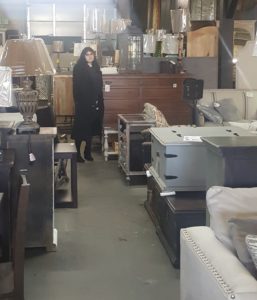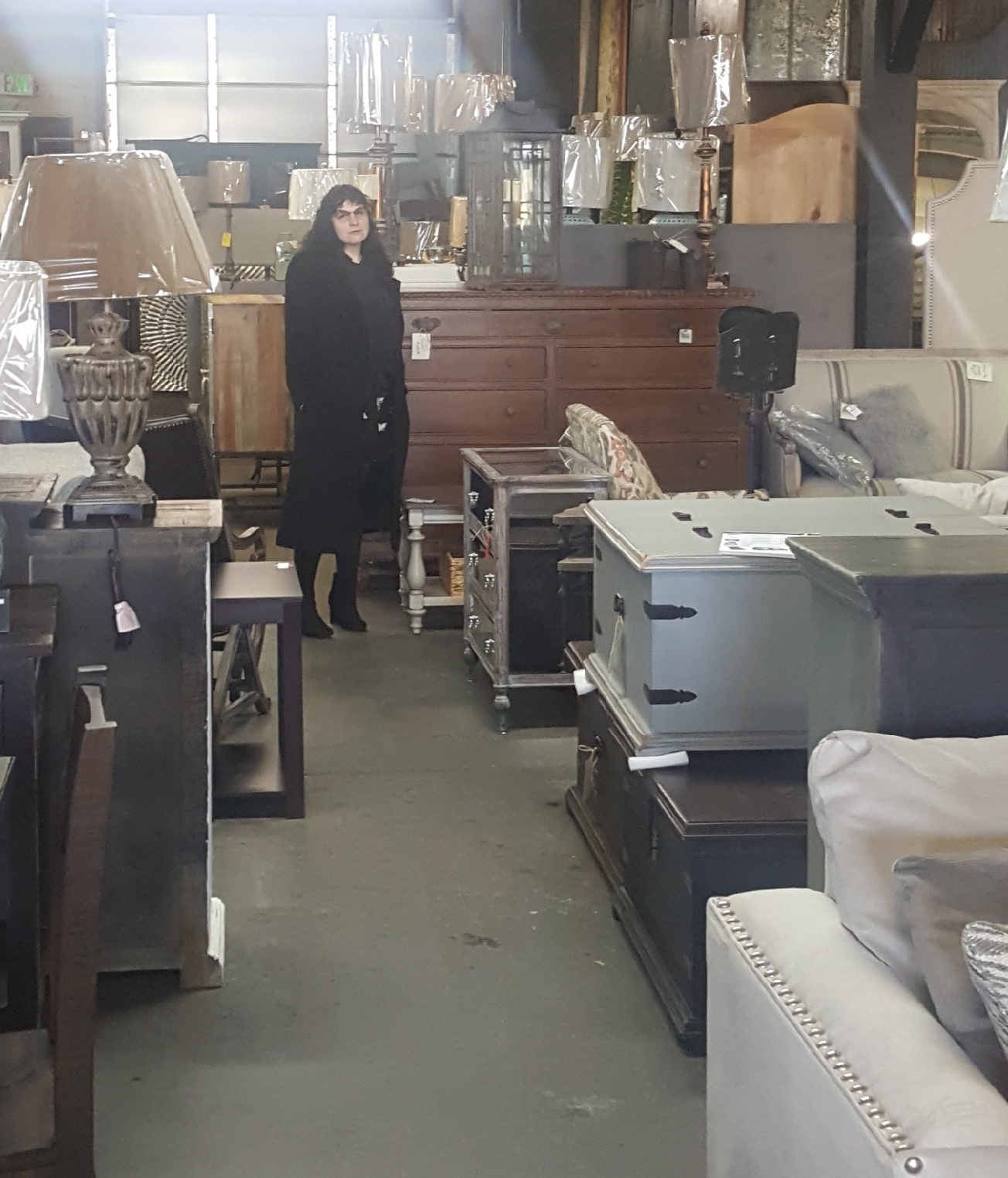The Zoe Transformations
The becoming-posthuman speaks to my feminist self, partly because my sex, historically speaking, never quite made it into full humanity, so my allegiance to that category is at best negotiable and never to be taken for granted.
–Rosi Braidotti
In this story, every girl lives, and not a single one of us has to fight for it. Survival is a given, not a worry buried deep underneath hello underneath our quiet scurrying home when we were legged things. We/subjects. We/girls. We/Zoe. We/post-post-post-ourselves.
If ever humans were to save the earth, we were to composite, animalize. But before this,
we were posted on billboards. We were missing persons, head banded and beaming with braces and braids in our school pictures, filling up news screens. Not that we were a family immediately, but we banded together. We chose each other. Our chosen family, we were just starting to say.
Winds lifted us in our headbands before we banded as a pack; it carried us away, mixed up what we were and when we were. By the time men came for us, we’d grown into a family that we were still in the process of becoming. When our wings began to develop though they’d never quite allow us to fly (we were only girls, after all), our teeth began to sharpen.
Cockroaches help each other, even if it means getting caught in the glue trap, too. Wolves stay in packs. We were cockroaches and we were wolves. There was no name for our changing, our becoming.
In darkness we saw each other’s hands. Our fingers—shadows. Our cheeks—walls. The room warmed in the absence of the families we knew. Enfleshed palms sweated salt. We felt walls then we climbed through them, only to find more.
We were in mazes in our skins in the dark, and though sometimes we heard whispers, we were alone aside from one another. The world would soon be on fire but before this,
our skin turned to scales as we huddled together in the dark place. We couldn’t tell one set of legs or arms from another. The first time our scales peeled off and floated into the air like fresh/fleshed flakes of snow, we let them fall to the ground. The next time, we ate them. We were specks of sand we were dirt we were breath inside of a throat and the space between the quietest corners was where we were. We were Zoe.
We came from deserts, mountains, islands. We’d known each other always. We came from wind. Each Zoe post/I, we were soft-bodied girls and we had to harden; everyone does. But not before we let ourselves get swept up into the hands of men. We became each other. We became in our cages, against fires, alongside more and more winds.
Enfleshed and at once ex-fleshed, we carved mazes with our sharpened fangs in the dark earth. Huddled underneath that earth until we didn’t need breath any longer. We were we; our arms; our backs; our lips; our nail beds; our heels and our lashes and our skin and our blood and our words all blended until we all blended together—identical.
*
After a great fire, time stopped. Hours dispersed and dissipated as a thin veil of smoke. When the smoke cleared we were no longer in our cages, though some nights (which could be any and is every night), we’d feel our fangs grow sharper and the skin on our backs harden to shells. We’d remember, as our skin hardened, telling our mothers how much it hurt to sleep on our stomachs, our chests changing. It’s natural, our mothers said. It’s perfectly natural; all girls feel at war with their bodies sometimes. In our cages with fresh shells, we didn’t feel a thing.
Fires destroyed forests. Time continued. The eggs on our hardback shells glued to our sides hatched. Our daughter Zoes—tiny-bulbed bugs marched out of our sacks and grew long hair like our own, fangs sharper and sharper. We were proud and terrified for them. Who is the world made for? We’d shake our heads and gulp our worst fears, and our pictures weren’t on the news anymore. We made girls who went to war, put out fires before they spread. And then,
we grew weary of who gets to be saved and who has to do the saving so we decided no more, and refused to fight another living being ever again. Only fire. This meant leaving our darkness and never being found.
*
When the timing is never and always now, and when now keeps happening again and again, the time is good as ever. We know our daughters, our post-post-copies all Zoes are already something else, and the world will be something else, and the men with their hands will never come near us or change us or keep us what we once were. We were once disappeared but now it is the men who have speckled away into thin air, and nobody is posting on the news anymore. There is no news.
Engulfed in smoke we reached a hill of weeds and geranium bulbs.
Warming in the luscious heat of its darkness we scurry inside of the sink faucets, through pipes; we find water. When a fire starts it spreads. When a fire spreads we tuck our hair into our backs and flatten our bodies underneath doorframes, sliding our stomachs against the smoke. Our chests fold effortlessly, no more breasts to keep us. And yet. We stay within our bodies and a body is an important asset. Protect your assets, our mothers always told us. Wear lipstick to the grocery store, Zoe. Or Alicia or Rebecca or Cecile, though we are all Zoes now and the exact time in which we are living and experiencing is always and never now.
Inside houses atop overgrown hills we climb walls we stretch our bodies inside cracks, hold our breath in the bathtub for hours at once. We/each other-carry eggs on our backs. In the right light our eggs look like wings, but we do not fly, only scatter. With no way to escape our/selves, we carry our bodies and our bodily wires until they cease, who has to die if not us. We turn on radios, screens, whatever’s left in charred houses. We brush each other’s hair. Pick leaves from the garden and soften them on the stove. Feel each other’s fangs in the dark.
 Gail Aronson is the most recent former editor of Black Warrior Review and a fiction editor for Omnidawn Publishing. Her work has appeared in Gigantic Sequins, Shirley, and elsewhere. She lives in Alabama.
Gail Aronson is the most recent former editor of Black Warrior Review and a fiction editor for Omnidawn Publishing. Her work has appeared in Gigantic Sequins, Shirley, and elsewhere. She lives in Alabama.


